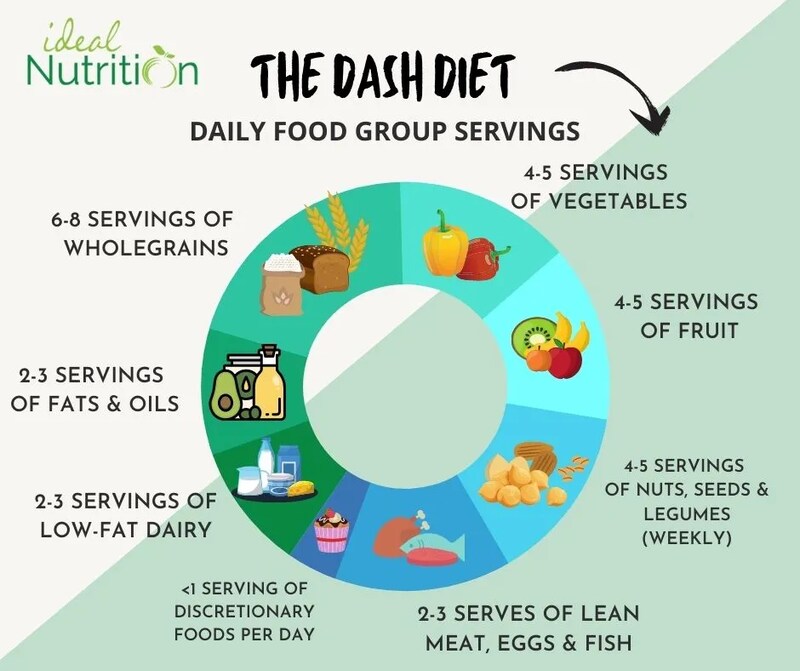In the pursuit of optimal health, you must play a pivotal role in selecting an appropriate diet plan. This article investigates both exemplary and detrimental diet plans' influence on weight loss and heart health. We will explore from popular trends to evidence-based strategies, revealing the secrets for accomplishing your fitness objectives.
Best Diets for Weight Loss
Choosing the right diet is paramount for shedding those extra pounds. Some of the best diets, known for their effectiveness in promoting weight loss, include:
Ketogenic Diet
The ketogenic diet is also known as the keto diet. It emphasizes low carbohydrate intake while promoting high-fat consumption. This composition propels the body into a state of ketosis.
In such a metabolic environment, stored fats become prime targets for energy production through burning processes: hence its popularity in facilitating rapid weight loss.
Intermittent Fasting
When practicing intermittent fasting, you emphasize the timing of your meals you’re your composition. By adopting strategies such as the 16/8 method or alternate-day fasting, individuals can effectively manage calorie intake and encourage weight loss without needing to adhere rigorously to specific dietary restrictions.
Plant-Based Diets
Vegetarian and vegan diets prioritize whole, nutrient-dense foods in their plant-based emphasis. These choices abound with fiber, vitamins, and minerals, promoting fullness. Furthermore, they facilitate weight loss while bolstering overall health.
Best Diets for Heart Health
Overall well-being necessitates a healthy heart. Certain diets earn popularity for their positive impact on cardiovascular health. These include:
1. Mediterranean Diet
Emphasizing fruits, vegetables, whole grains, and olive oil while limiting red meat and saturated fats is the Mediterranean diet. It notably stands out for heart health.
The risk of heart disease is notably reduced due to fish's abundant presence of omega-3 fatty acids.
2. DASH Diet
The Dietary Approaches to Stop Hypertension (DASH) protocol emphasizes the reduction of sodium intake while placing an increased focus on fruits, vegetables, whole grains, and lean proteins. This strategy garners praise for not only lowering blood pressure but also boosting heart health.

3. Portfolio Diet
The Portfolio Diet is a dietary approach that incorporates cholesterol-lowering foods such as nuts, oats, barley, and plant sterols. It has shown remarkable effectiveness in reducing LDL cholesterol levels and bolstering heart health.
Overall Best Diets
Certain diets present a compelling option for individuals pursuing a comprehensive approach to weight loss and heart health:
- Plant-Based Whole Foods Diet
Individuals who prioritize weight loss and heart health find that embracing a diet centered around plant-based whole foods is an exceptional choice.
This approach is abundant in fruits, and vegetables, rich with whole grains and plant-based proteins, and offers a sustainable, comprehensive solution for achieving wellness goals.
- Flexitarian Diet
Combining the words 'flexible' and 'vegetarian,' the Flexitarian diet promotes a primarily plant-based approach with occasional meat consumption. This very flexibility renders it an attractive option for individuals seeking sustainable weight loss and cardiovascular support.
Thoughtfully consider your individual health goals and preferences when incorporating these diets into your lifestyle. Keep in mind that finding a diet that aligns with and fosters long-term sustainable health benefits is the key to success.
Worst Diets for Weight Loss
You must carefully consider the diet plan you choose before embarking on a weight loss journey. Regrettably, all diets do not possess equal effectiveness.
Some might impede your progress. Now, let us explore several of the most detrimental diets for achieving weight loss:
The Crash Diet Craze
Often promising rapid weight loss in a short period, crash diets can detrimentally affect your health. These diets usually entail severe calorie restriction. This leads to nutrient deficiencies and significantly increases the likelihood of regaining lost weight upon resuming normal eating habits.
The Exclusionary Extremes
Advocating for the exclusion of entire food groups such as extreme low-carb or low-fat diets can prove counterproductive. Your body may suffer essential nutrient deprivation, and metabolic balance disruption and compromise long-term sustainability under these approaches. This compromises their efficacy.
Worst Diets for Heart Health
We must prioritize maintaining a healthy heart, as certain diet choices can negatively impact cardiovascular well-being. Let us analyze some of the most detrimental diets about their effect on heart health:
High-Saturated Fat Diets
Red meat, full-fat dairy, and processed foods commonly contain saturated fats that can raise cholesterol levels and heighten the risk of heart disease in individuals with diets high in these elements. Heart health necessitates a crucial limitation on the consumption of such dietary sources.
Excessive Sodium Intake
Many processed and fast foods contain high levels of sodium, a dietary element known to elevate blood pressure and strain the cardiovascular system. For those aiming to maintain a heart-healthy lifestyle, they must minimize their consumption of these high-sodium foods.

Overall Worst Diets
Considering diets for weight loss and heart health. Certain approaches may pose an overall risk to your well-being. You must be aware of these potential pitfalls.
- Unsustainable Detox Diets
Often, detox diets promise to cleanse your body and facilitate weight loss. Yet, their restrictive nature with a focus on short-term results can catalyze a cycle of weight fluctuations.
Moreover, potential health risks lurk in these patterns. Sustainable long-term changes hold undeniable preference over quick fixes at all times.
- Unbalanced Macronutrient Ratios
Extreme low-carb or high-protein diets, which heavily skew macronutrient ratios, may compromise overall health. It is crucial to understand the significance of a balanced approach to macronutrients for sustaining weight loss and optimizing heart health.
Equipped with an understanding of the shortcomings posed by the most ineffective weight loss diets, you now know the red flags associated with such diets. If any options from this list comprised predominantly of detrimental weight-loss plans present themselves to you, be cautious to avoid following them.
Important Note - Consultation with a Health Professional
Before you begin any diet plan, consulting with a health professional or registered dietitian remains crucial. These experts can evaluate your unique health requirements, identify potential risks, and provide personalized guidance to guarantee the safety and suitability of the selected diet for you.
Pre-existing medical conditions, allergies, or specific dietary needs should guide us in tailoring a strategy that promotes your overall well-being.
Always bear in mind that the pivotal aspect of achieving successful and sustainable weight loss lies not in simply shedding pounds, but rather, it hinges on your ability to make informed choices under the professional guidance of a healthcare expert.
Conclusion
The bottom line is that each embarks on a unique journey towards weight loss and improved heart health. Understanding the nuances of various diet plans, navigating challenges, and making informed choices pave your path to sustainable success.
Choose wisely, stay informed, and begin the pursuit of a healthier you.







